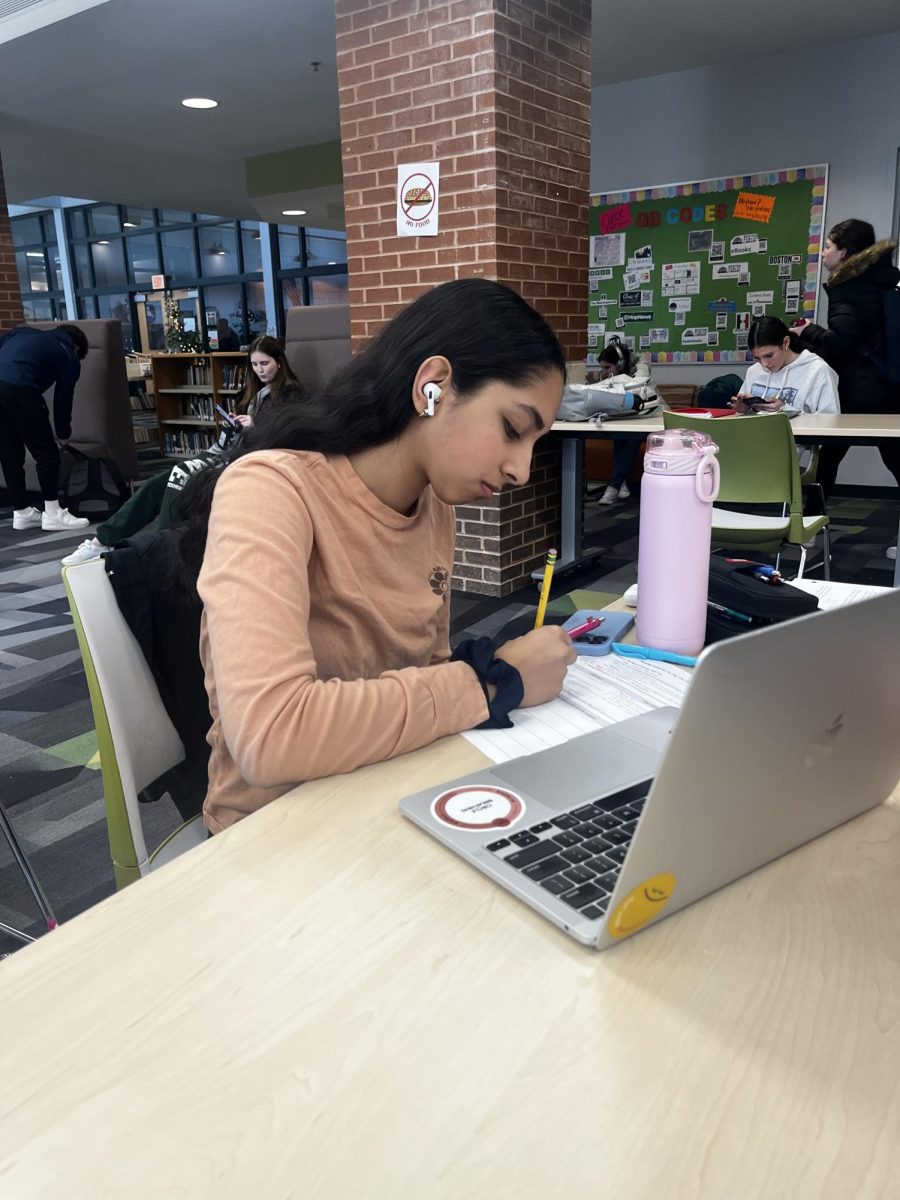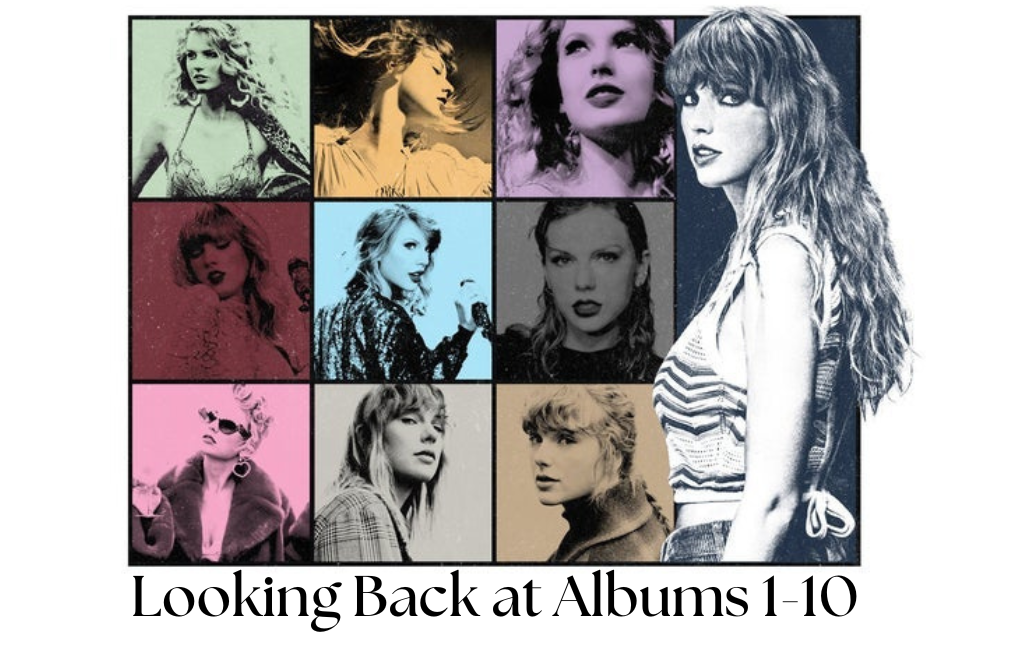Many students, including myself, depend on music to focus and thrive when it comes to school, but how much is it involved in our everyday lives and education? As Spotify Wrapped came out on November 29, 2023, it showed listeners yearly minutes and as I talked to many students I got any number between 15,000 to 50,000.
To take a closer look at the musics impact on students I interviewed Anagha Kulkarni and Fatima Bokhari. Both girls had listened to more than 20,000 minutes of music this year according to their Spotify Wrapped. Although they listen to 2 different types of music Fatima recalls her number one artist was Jack Miller and Anagha’s is Taylor Swift.
Both girls achieved a higher number than most due to carrying headphones with them most of the day.
“If I forget my headphones at home, I want to die and I’m in a bad mood all day,” said Fatima
Anagha similarly said “I feel like I’m not myself when I don’t have my AirPods”
Music is a gateway to many students’ happy places and is an escape from the stress that school applies. It also can improve efficiency for lots of teenagers who have to study for multiple tests or write essays, as it adds a fun aspect that can sometimes make work enjoyable.
“When I listen to music in class most of the time it helps, it is just like background noise and I can focus. There are also times when I get too engrossed in it and I have to turn it off” said Anagha.
A classroom can be a loud environment with lots of distractions and music is a good way to tone them out. Although, many teachers do not agree with music in the classroom and find it too distracting.
Fatima says, “Some of them are fine with it while others think it is disrespectful which I understand as when teachers are talking they want their students to be present.”
I talked to two teachers, Mr. Wilander and Mr. Challinor, who had conflicting views on music in the classroom. Mr. Wilander does not allow it in his room as “I generally don’t want them to be distracted and to maintain consistency each day I just don’t allow it at all”
Mr. Challinor disagrees as he lets students have one AirPod during class and can also listen while doing work. However, Challinor thinks “it distracts students who get easily distracted already and music doesn’t usually help with that.”
Mr. Wilander said that he would be willing to have a conversation about having AirPods in class if it helps the students learn better
Both of these teachers understand how important music is in a person’s life, as they both listen to it every day. Mr. Wilander says that when he is being active he feels it helps with productivity but not when he is grading papers.
Along with listening to music in school, Fatima and Anagha get most of their Spotify minutes at home. Fatima says that her efficiency due to music can go up or down and when she has to be more productive she might turn off the music. Anagha also listens to music while she does her homework as it is a good way to pass the time.
To get a bigger perspective on music, I talked to Barbara Wagner from HHS’s mother, Anne Wagner. She contributed to her daughter’s music taste as she played it throughout the house during the day. When I asked her if she thinks her daughter listens to too much music, she said, “I don’t think it is too much because I like music and it makes me happy so I understand why she does.”
Parents and teenagers can use music as a bonding experience because of how much they can influence each other. Instead of listening to music with headphones while doing homework, Barbara is down in the kitchen listening with her mom.
School is a very social place and many people sometimes meet their lifelong best friends in high school. Does music take away from that? Anagha says that she would rather talk to her friends during a study period than listen to music while Fatima says “I would rather listen to my favorite artist then and I guess it depends on who is with me and sometimes I just don’t have the social battery to talk to others.”
However, Fatima believes that it is rude for someone to be listening to music while they have a conversation with another person. She will try to stop all her music when a person has a conversation with her
“I could not hold a conversation with people if I had an AirPod in,” she said.
Music can also be an expression of a student’s emotions and different genres can help process sad feelings. It is used for those who have a hard time talking about their feelings.
Anagha says “Music depends on emotions when I’m sad it makes me even sadder but I like that so I do it to myself ”
Music wrapped around our education and everyday emotions. I belive it is a tool so many students use to function and excel.


